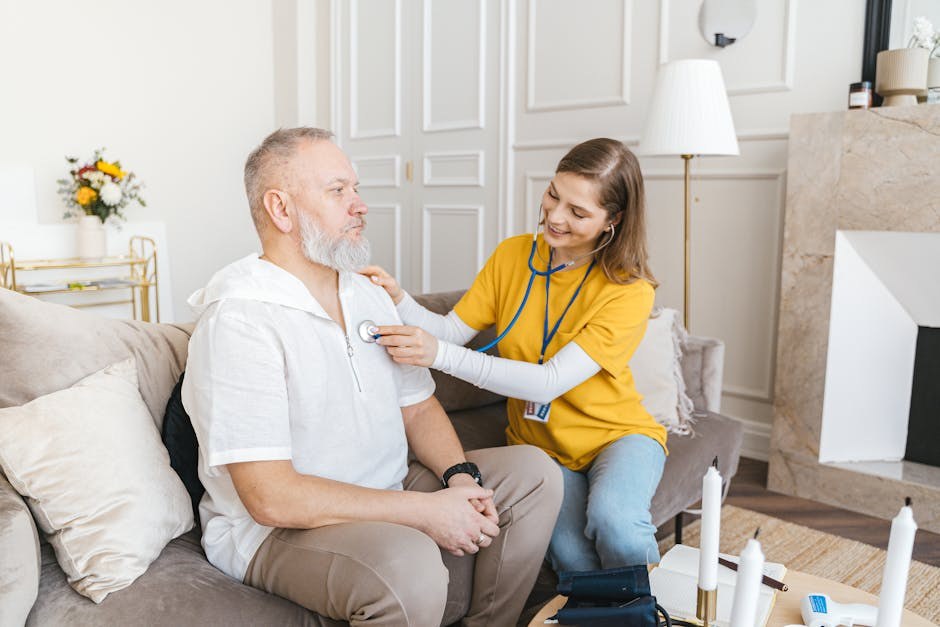Curiosity about intimate experiences often grows from trust, communication, and a shared desire to explore. When partners talk openly and move at a pace that feels safe, new sensations can become meaningful rather than intimidating. This guide focuses on analingus in a non-graphic way – prioritizing consent, cleanliness, and comfort so that any decision to engage is informed, respectful, and grounded in care for one another.
Understanding the idea without the hype
Intimacy evolves as people discover what feels good, what feels awkward, and what feels absolutely off-limits. Analingus sits at the intersection of curiosity and caution – it may be intriguing to some and unappealing to others. Neither reaction is “right” or “wrong”; what matters is that every step is consensual and unpressured. When partners approach the topic with honesty and patience, they can decide together whether to include or exclude it from their shared repertoire.
Because the topic can feel taboo, it helps to speak plainly. Analingus refers to oral contact with the anus. Framed as adult exploration rather than performance, the conversation becomes easier: you are not auditioning for a part – you’re co-creating comfort and boundaries with someone you trust.

Consent is the cornerstone
Consent is not a one-time checkbox – it’s an ongoing dialogue that begins long before any physical contact. Ask for explicit permission, listen carefully to the answer, and respond without defensiveness. If you receive an enthusiastic “yes,” continue checking in; if you hear a hesitant “maybe,” treat it as a “not now”; if you get a “no,” honor it without debate. The goal is to protect safety and connection – not to win an argument. Consent can be withdrawn at any moment and must always be respected.
Practical language helps. Try neutral questions and statements that reduce awkwardness: “How do you feel about trying something new?” “Would you like to talk about analingus?” “It’s completely okay to say no.” These phrases lower pressure and affirm autonomy – a tone that strengthens trust and makes exploration, if it happens, more comfortable.
Setting boundaries that feel solid
Boundaries turn abstract comfort into clear expectations. Discuss what is off-limits, what might be okay in the future, and what is welcome now. Agree on signals – a word, a tap, or a simple “pause” – that either partner can use to stop or slow down. Deciding on signals beforehand prevents confusion in the moment and reduces the fear that discomfort will be ignored.

Remember that boundaries can differ from one day to the next. Fatigue, stress, or a shift in mood can change someone’s appetite for any kind of touch. Treat every encounter as a new conversation; prior consent does not guarantee future consent.
Cleanliness without obsession
Cleanliness supports relaxation – when both partners feel fresh, it’s easier to focus on connection rather than worry. Gentle washing during a shower is typically sufficient. Aim for comfort, not perfection; meticulous routines can create pressure that undermines intimacy. The point is to feel calm and confident, not to chase an impossible standard.
A brief rinse of the external area with warm water and mild soap is usually enough. Avoid harsh scrubbing – the skin is delicate and irritation can make any contact uncomfortable. If either person still feels uncertain, another quick rinse can be reassuring. Approach cleanliness as teamwork: give notice if you’re considering analingus so the receiving partner can prepare in a way that feels right for them.

Communication that keeps everyone present
During any intimate experience – and especially when trying something unfamiliar like analingus – simple, in-the-moment feedback keeps things grounded. Short phrases such as “slower,” “softer,” “different pressure,” or “let’s take a break” help partners stay responsive. If silence feels easier, agree on a nonverbal signal beforehand. Responsiveness is more important than spontaneity; being attentive shows care and deepens trust.
Comfort, pacing, and mindset
Comfort is as much about context as technique. Privacy, warmth, and unhurried time reduce tension. Add a towel for peace of mind, adjust pillows to support hips and lower back, and choose a position that allows both partners to breathe easily and communicate face-to-face if desired. A relaxed environment encourages the body to release unnecessary tension – a benefit for any intimate touch, analingus included.
Slow pacing also matters. Approaching gradually gives the receiving partner a chance to notice what feels okay and what does not. Pauses are not problems – they are points of information. Treat curiosity like a conversation rather than a race; the body often responds best when exploration proceeds in small, considerate steps.
Respectful language for a sensitive topic
Words shape experiences. Choose language that is kind, clear, and free of judgment. Avoid joking about cleanliness or making comparisons to past partners – even if meant playfully, such comments can generate shame and shut down communication. Affirm what your partner expresses: “Thanks for telling me.” “Let’s stop.” “We can try something else.” Those phrases turn vulnerability into collaboration.
Safety and simple precautions
Because the mouth and the anus have different bacterial ecosystems, thoughtful precautions help protect health. Barriers designed for oral contact – such as thin sheets meant for intimate play – can reduce risk while preserving sensation. If barriers are not used, rinsing the mouth with water afterward is a sensible hygiene step. Keep separate items for different kinds of touch; avoid transferring anything from the anus to other sensitive areas. Small acts of care reassure both partners that pleasure never outranks wellbeing.
Lubrication contributes to comfort if any external touch becomes more than fleeting. The area does not self-lubricate, so a dab of a suitable product can reduce friction externally. Patch-test unfamiliar products on less sensitive skin first to check for irritation. When in doubt, simplicity wins – the gentlest option is often the best.
Managing expectations about sensation
People experience sensation differently. Some may find that the surrounding skin registers temperature, light pressure, and breath as pleasant; others might feel neutral or sensitive in a way that is not enjoyable. Like any form of intimacy, analingus is not a universal preference; it’s an optional pathway. Framing it as a choice rather than a benchmark of generosity prevents disappointment and keeps exploration low-stakes.
Curiosity about taste or smell is common and not embarrassing to voice. With everyday cleanliness and mutual preparation, many people simply notice warmth and skin. If either partner feels uncertain, a shower right before intimate time can restore confidence and reduce worry.
When “no” is the best yes
It is healthy to decide that analingus is not for you. A clear, respectful “no” protects intimacy by removing pressure and leaving room for other forms of pleasure that do appeal. The purpose of exploring is not to impress a partner – it’s to discover what brings connection and ease. Many couples thrive with other kinds of touch, and choosing those alternatives is equally valid.
If one partner is curious and the other is not, look for compromises that preserve autonomy. For example, explore external touch far from the anus, or focus on massage, kissing, and other forms of closeness that both enjoy. Shared pleasure grows where mutual agreement lives.
Preparing the environment with care
Small details signal respect: freshly laundered towels, soft lighting, a glass of water at arm’s reach, tissues nearby, and music that allows conversation. These cues create a tone of calm competence, which makes any decision – to proceed, to pause, or to pass – feel comfortable. When partners feel looked after, they can stay present and honest.
Aftercare – the quiet part that matters
Aftercare transforms an experience into a memory of safety. Offer water, check in gently, and thank each other for the trust and communication you shared. If something felt off, talk about it with kindness and without blame; small adjustments now can prevent big misunderstandings later. A warm rinse or mouthwash may feel reassuring for some – treat these steps as practical, not dramatic. The message is simple: we cared before, we care during, and we care after.
Talking about analingus without embarrassment
Finding neutral words makes discussion easier. Many people prefer clinical terms in planning conversations and more casual language (if any) in private moments. You might say, “I’m curious about analingus in theory; I don’t know if I’d enjoy it,” or “I’d like to keep this off the table,” or “I feel open to talking about it again later.” Each sentence centers personal preference rather than obligation, which invites a truthful reply.
Remember that ease grows with familiarity. The first conversation may feel awkward, but a second or third discussion often feels simple. Keep the tone warm and pressure-free. The goal is clarity – a shared understanding that supports comfort whether you try something once, never, or not yet.
Body image, trust, and patience
Body image can make new experiences feel daunting. Reassure each other sincerely – not with empty flattery but with specific appreciation: “I like how relaxed you get when we take our time,” or “I value how clearly you speak up.” Appreciation reinforces that your bond is about trust and presence, not meeting a checklist. Patience is the pace of real intimacy; no one is late when care leads the way.
Alternatives for couples who want closeness without direct contact
Closeness does not require any particular act. If analingus does not appeal, consider other options that many people enjoy: slow massage along the lower back and hips, gentle kissing along the curves of the body, or simply holding each other while breathing together. These choices cultivate the same ingredients that make any encounter meaningful – attention, tenderness, and mutual consent – without involving forms of touch that feel uncomfortable.
Putting it all together with compassion
Analingus should never feel like a test of open-mindedness. It is one optional avenue among many, and the healthiest approach treats it with the same respect you’d bring to any private moment: clear consent, sensible cleanliness, unhurried pacing, and steady communication. If you both feel curious, talk first; if you both feel uncertain, there is no rush; if one of you is uninterested, choose something else and protect the connection you share.
Exploration is most satisfying when it grows from mutual care. With consent at the center and comfort as the compass, you can decide together what belongs in your intimate life. Whether analingus becomes a part of that or remains on the “not for us” list, the real success is the trust you build – the feeling that both of you are listened to, looked after, and free to choose.